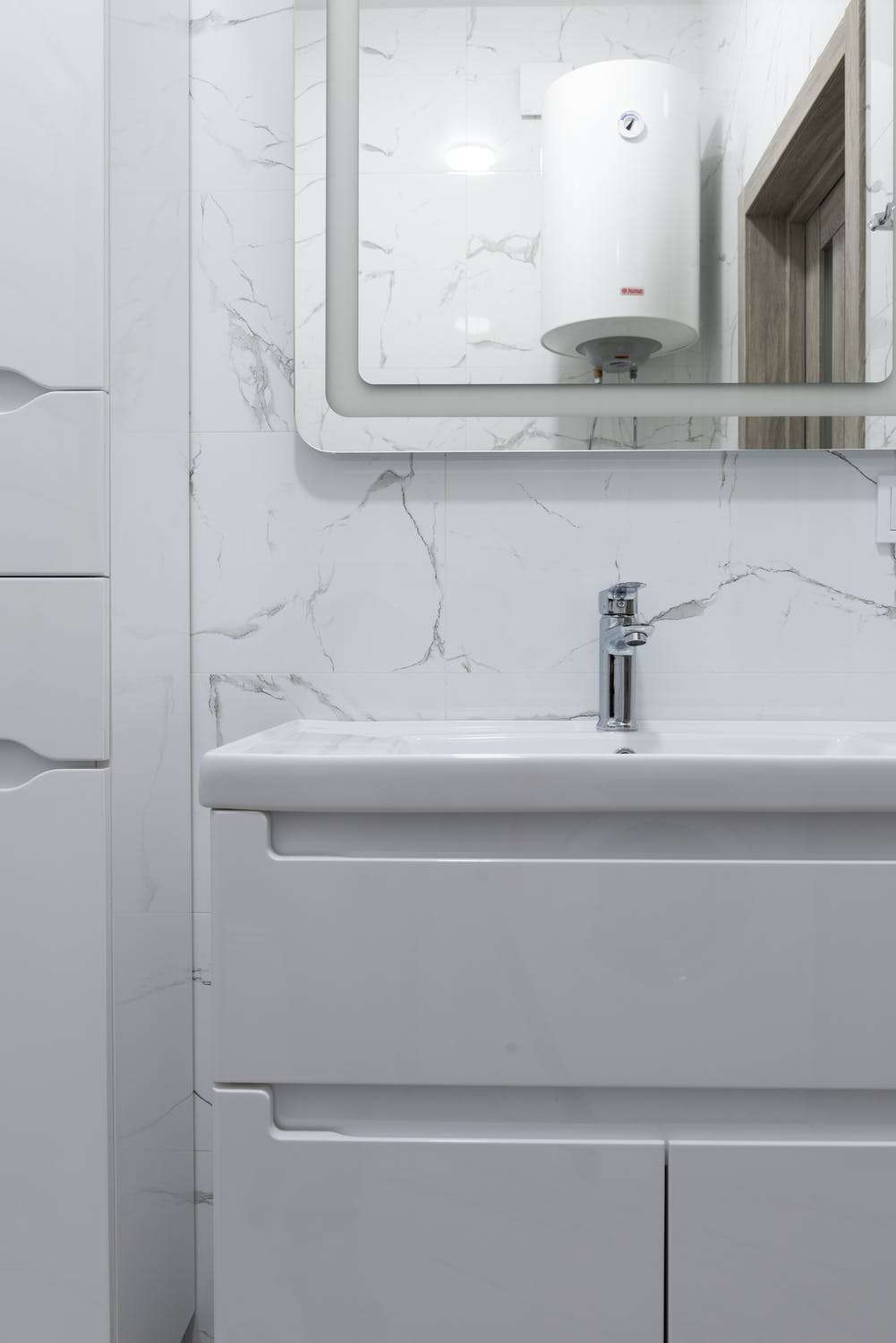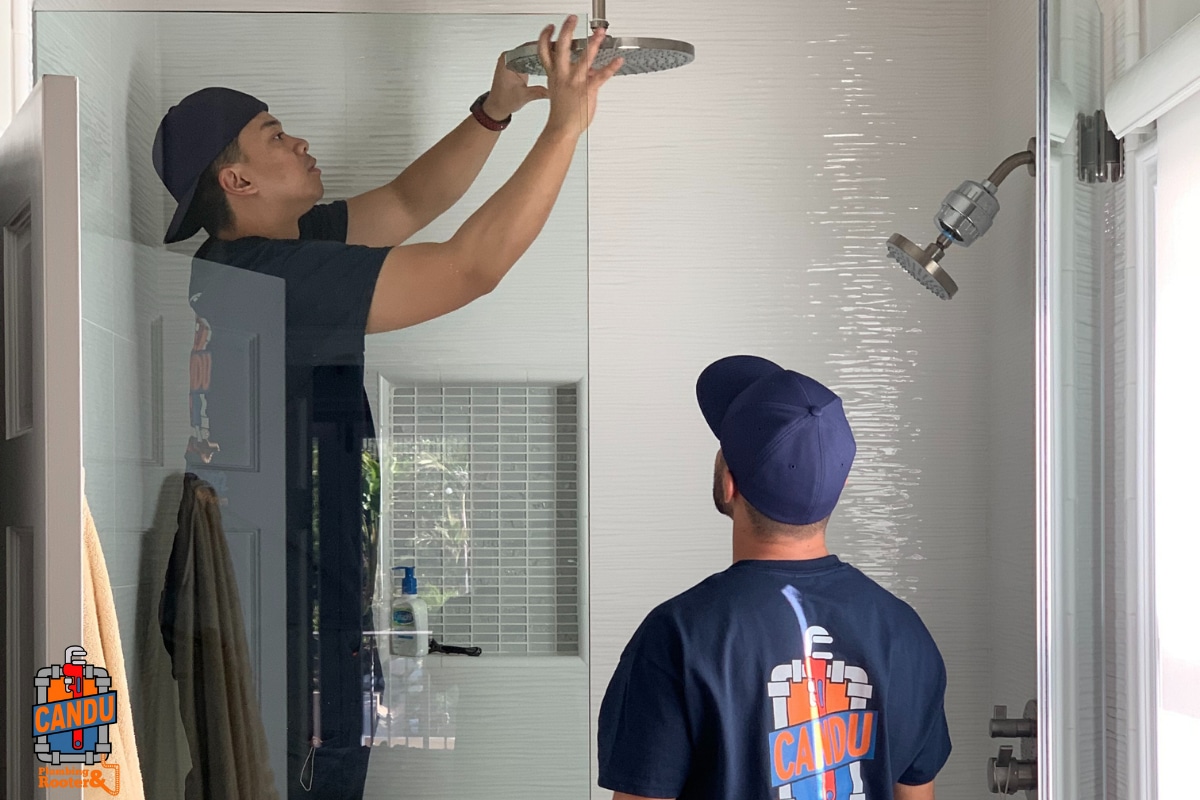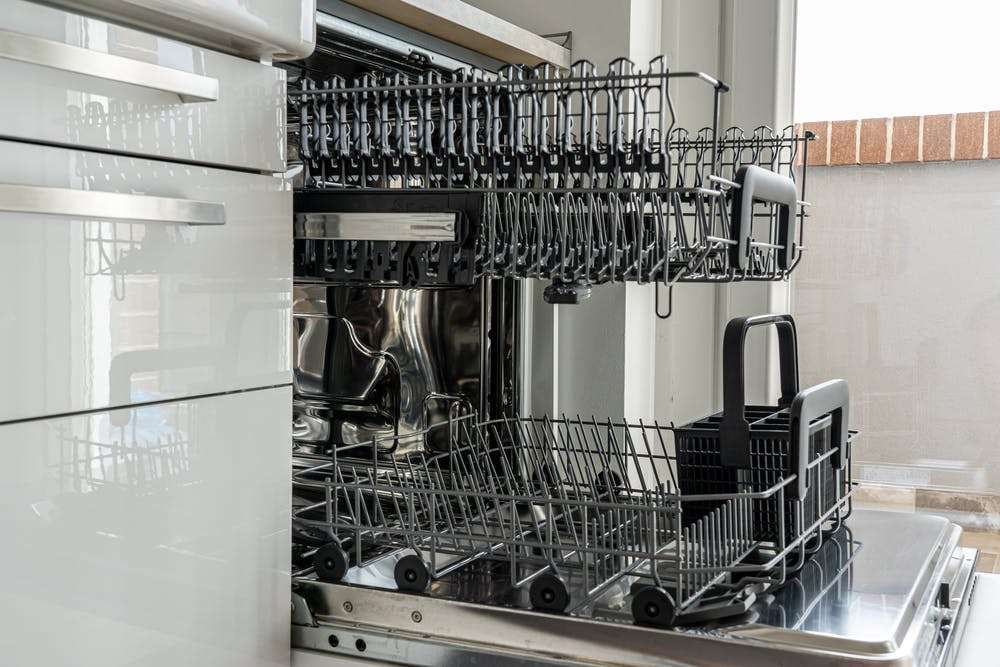EDITED – Candu Plumbing & Rooter – 9 Maintenance Tips to Extend Your Water Heater’s Life
Many people buy a water heater and then forget about it until it breaks down suddenly and needs to be replaced. However, with a few essential water heater maintenance tips, you can extend the unit’s lifespan while also increasing its efficiency.
Average Lifespan of a Water Heater
Before we begin, let’s talk about the usual lifespan of a water heater. With adequate maintenance, gas water heaters may last between 8 and 12 years. When properly maintained, electric water heaters have a lifespan of 10 to 15 years.
While it’s true that today’s water heaters survive longer than previous generations, proper maintenance is still essential to maximize their lifespan.
Follow these nine maintenance tips if you want your water heater to last longer and provide consistent water temperatures for years.
1. Check the Pressure Valve
Your water heater (whether gas or electric) has a safety device known as the temperature-pressure relief valve, sometimes known as the TPR valve or the T&P valve. If too much pressure or heat builds up, this valve will open, preventing damage to the heater and hazardous explosions.
A clogged valve is often caused by an accumulation of residue or silt, which can obstruct the valve’s opening. For best functioning, check the valve multiple times a year. This task is simple: first, turn off your unit’s gas or electricity, then open and close the valve a few times. Keep an eye on the water flow from the drainpipe since a properly working valve will release water when it is open.
If no water flows out, it is time to replace the TPR valve. Water heater maintenance is substantially less expensive than purchasing a whole new unit. You save money in the long term. Make sure to stay up to date with your maintenance!
2. Inspect the Anode Rod
Water heater tanks have a metal rod that draws minerals such as calcium. These minerals form silt that can erode the water tank lining. Thus the rod safeguards the unit by attracting certain minerals and preventing them from settling on the tank.
When this rod wears out, so does your heater’s normal functioning. These minerals might cause corrosion and leaks in your tank. To extend the life of your water heater, inspect your anode rods regularly and replace them every 3-5 years.
Before inspecting the rod, always switch off the gas or power to the device. Draining a few liters of water might also assist you in checking for corrosion within the tank. Loosen the hex nut on the top of your tank, and the rod will be hooked straight to it.
It’s time to replace the rod if considerable sections of the core wire are exposed or a heavy deposit coating is observed. Fortunately, a replacement anode rod can be acquired quickly and affordably at any hardware store.
3. Flush the Tank Regularly
Drain a few gallons of water from your water heater into a bucket every 6-12 months to inspect the water. If the water is dirty and debris-filled, you should thoroughly clean the water heater.
When debris accumulates in the water heater tank, it can dramatically reduce the efficiency of your water heater and raise your energy expenditures.
Some new self-cleaning water heaters remove sediment automatically, but you should still flush and clean the tank every three years or so.
4. Install Insulation
Insulation should be built around the pipes as well as the heater.
Purchase pipe insulation that fits the length and diameter of the water heater’s pipes. Consider utilizing a 3/8-inch-thick foam self-sticking insulation.
Cover both the hot and cold water pipes with insulation. Cover the pipes as much as possible. This prevents the pipes from sweating or creating moisture throughout the heat.
If the pipes are 6 inches or closer to the flue, use a 1-inch thick unfaced fiberglass pipe wrap to cover them.
5. Set Temperature the Right Way
Setting the temperature is a simple process that only has to be done once. However, if you are going to be away from home for an extended period, it may be beneficial to change the temperature before you leave and then re-adjust it when you return.
Set the thermostat to the lowest setting or turn it off until you come home when leaving for an extended time.
Most gas water heaters come with a knob or valve that allows you to turn it down or put it to “Vacation Mode,” which keeps only the pilot light illuminated.
6. Examine Gas Lines
If your water heater is connected to gas lines, these must also be inspected. These pipes must be repaired as quickly as possible if they have cracks or corrosion. If you suspect a gas leak, it’s critical to call in a plumber as soon as possible.
7. Install an Expansion Tank
When water is rapidly heated, it expands. If your water heater is in a closed system with no backflow into the water main, this water has nowhere to go as it expands. The rapid variations in pressure due to temperature swings place a significant strain on a water heater.
By installing an expansion tank, you provide an exit for the water and prevent significant wear and tear on the water heater.
8. Add a Water Softener
If you live in a state where the mineral content of the water is high, adding a water softener may help you extend the life of your water heater.
Hard water occurs when there is a significant mineral concentration in the water. Hard water is a significant factor in reducing the lifespan of water heaters.
This is because the mineral content builds in the water heater, causing it to fail considerably sooner than intended. Installing a water softener lowers the likelihood of mineral content buildup in your system.
9. Be Mindful of the Expiration Date
We all check the expiration date on milk and other foods, but when was the last time you checked the date on your water heater? If your water heater is at least 8 years old, it might be time to start thinking about replacing it. If your unit is more than 12 years old, it’s time to replace it to guarantee you’re receiving the most energy-efficient, healthy, and safe product for your house and family.
Conclusion
Following these easy maintenance tips is the most effective approach to extend the life of your water heater. Although these suggestions are straightforward, they might be challenging for people who don’t know the first thing about plumbing. Call a professional if you suspect your water heater requires maintenance, repairs, or replacement.
Need the services of a professional plumber in Oak Park? Candu Plumbing & Rooter is here for you. We offer professional plumbing services that will help you get the most of your water heater and more. Contact us today!





